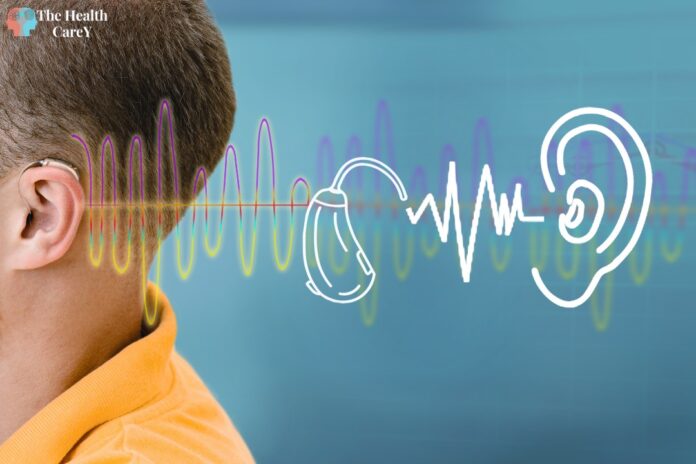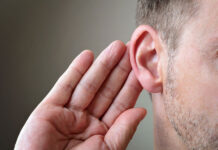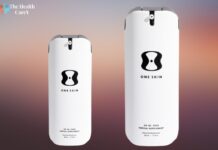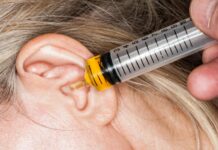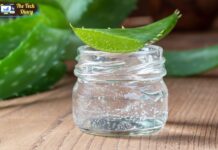Are you experiencing a crackling sound in your ear? And want to know How to Get Rid of Crackling Sound in Ear? If so, you’re not alone. Many people experience this sensation, which can be both annoying and concerning. Fortunately, there are steps you can take to get rid of the crackling sound and prevent it from happening in the future.
One common cause of Crackling Sound in Ear is a buildup of earwax. When earwax accumulates in the ear canal, it can cause a blockage that affects your hearing and produces a crackling sound. Another possible cause is Eustachian tube dysfunction, which occurs when the tube that connects your middle ear to the back of your throat becomes blocked or doesn’t function properly. This can cause pressure changes in your ear and lead to crackling or popping sounds. In rare cases, crackling in the ear may be a sign of a more serious condition, such as a tumor or infection, so it’s important to consult a healthcare professional if you experience this symptom frequently or if it’s accompanied by other symptoms.ear
Understanding Crackling Sound in Ear
If you’ve ever experienced a Crackling Sound in Ear, you know how distracting and uncomfortable it can be. This sound can be caused by a variety of factors, from simple earwax buildup to more serious conditions like Meniere’s disease. Understanding the root cause of your crackling sound can help you take the necessary steps to get rid of it.
One of the most common causes of crackling sound in the ear is earwax buildup. Earwax is a natural substance produced by the body to protect the ear canal from dirt and bacteria. However, when too much earwax accumulates in the ear canal, it can cause a blockage that leads to crackling sounds. To get rid of this type of crackling sound, you can try using over-the-counter earwax removal drops or see a doctor for professional earwax removal.
Another possible cause of crackling sound in ear is Eustachian tube dysfunction. The Eustachian tube is a narrow passage that connects the middle ear to the back of the nose and throat. When this tube becomes blocked or inflamed, it can cause a buildup of pressure in the middle ear, leading to crackling sounds. To alleviate this type of crackling sound, you can try swallowing, yawning, or chewing gum to help open up the Eustachian tube.
In some cases, crackling sound in ear can be a symptom of a more serious condition like Meniere’s disease. This condition is caused by an imbalance of fluid in the inner ear and can cause symptoms like vertigo, hearing loss, and tinnitus in addition to crackling sounds. If you suspect you may have Meniere’s disease, it’s important to see a doctor for diagnosis and treatment.
Overall, understanding the cause of your crackling sound in the ear is the first step toward finding relief. Whether it’s earwax buildup, Eustachian tube dysfunction, or a more serious condition, there are steps you can take to alleviate this uncomfortable symptom.
Why Crackling Sound in Ear When Moving Jaw
Experiencing a crackling sound in ear when you move your jaw can be a strange and uncomfortable sensation. This condition is called Temporomandibular Joint (TMJ) Disorder. The TMJ is the joint that connects your jawbone to your skull, and when it is not functioning correctly, it can cause a variety of symptoms, including a crackling sound in your ear.
There are several reasons why you may be experiencing a crackling sound in your ear when you move your jaw. One of the most common causes is due to the Eustachian tube. The Eustachian tube is a small tube that connects the middle ear to the back of the throat. When you move your jaw, the muscles in your ear and throat can pull on this tube, causing it to open and close rapidly. This rapid opening and closing can create a crackling sound in your ear.
Another possible cause of a crackling sound in ear when you move your jaw is due to the presence of fluid in the middle ear. This fluid can build up due to an infection or allergy, and when you move your jaw, the pressure changes in your ear can cause the fluid to move around, creating a crackling sound.
In some cases, a crackling sound in your ear when you move your jaw can be a symptom of a more severe condition, such as a tumor or a problem with the bones in your ear. If you are experiencing other symptoms, such as pain or hearing loss, you should consult with a healthcare professional to rule out any serious conditions.
In conclusion, a crackling sound in your ear when you move your jaw can be a symptom of several different conditions. While it is usually not a cause for concern, you should seek medical attention if you are experiencing other symptoms or if the crackling sound persists for an extended period.

Causes of Crackling Sound in Ear
If you experience crackling sound in ear, it can be a sign of an underlying ear problem. Here are some of the common causes of crackling sound in ear:
Eustachian Tube Dysfunction
The Eustachian tube connects the middle ear to the back of the throat and helps regulate the pressure in the ear. If the Eustachian tube is blocked or not functioning properly, it can cause the air pressure in the middle ear to be different from the air pressure outside the ear. This can lead to crackling sound in the ear. Eustachian tube dysfunction can be caused by allergies, sinus infections, or changes in altitude.
Earwax Buildup
Earwax is a natural substance that helps protect the ear canal and prevents infections. However, if too much earwax accumulates in the ear canal, it can block the ear canal and cause crackling sound in the ear. Earwax buildup can be caused by using cotton swabs or other objects to clean the ear, which can push the earwax further into the ear canal.
Middle Ear Infection
A middle ear infection, also known as otitis media, is an infection of the middle ear that can cause fluid buildup and inflammation. This can lead to crackling sound in ear, as well as other symptoms such as ear pain, fever, and hearing loss. Middle ear infections are more common in children, but can also occur in adults.
Temporomandibular Joint Disorders
The temporomandibular joint (TMJ) connects the jawbone to the skull and allows for jaw movement. If the TMJ is damaged or not functioning properly, it can cause a variety of symptoms, including crackling sound in the ear. TMJ disorders can be caused by injury, arthritis, or teeth grinding.
Overall, if you experience crackling sound in ear, it is important to see a doctor to determine the underlying cause and receive appropriate treatment.
Symptoms Associated with Crackling Sound
If you are experiencing a crackling sound in ear, it can be accompanied by other symptoms that may vary in intensity and duration. Here are some of the symptoms that are commonly associated with a crackling sound in the ear:
- Ear pain or discomfort
- Dizziness or vertigo
- Tinnitus (ringing, buzzing, or whistling in the ear)
- Fullness or pressure in the ear
- Hearing loss or difficulty hearing
- Itching or irritation in the ear canal
These symptoms can be caused by a variety of factors, including ear infections, allergies, sinus problems, earwax buildup, or damage to the inner ear. It is important to seek medical attention if you are experiencing any of these symptoms, as they can be indicative of a more serious underlying condition.
In some cases, a crackling sound in the ear may be accompanied by other symptoms that are not related to the ear itself. For example, if the crackling sound is caused by an underlying respiratory condition such as bronchitis or pneumonia, you may also experience coughing, wheezing, or difficulty breathing.
Overall, if you are experiencing a crackling sound in your ear along with any other symptoms, it is important to consult with a healthcare professional to determine the underlying cause and receive appropriate treatment.
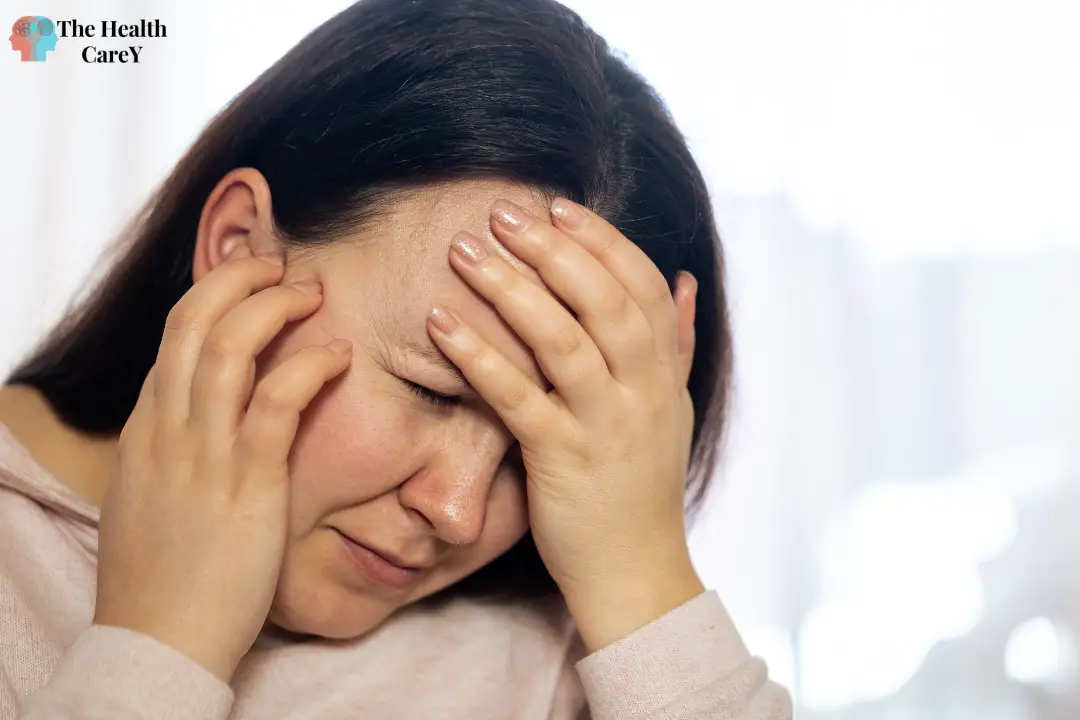
How to Get Rid of Crackling Sound in Ears
If you are experiencing a crackling sound in ear, it can be a frustrating and uncomfortable experience. Fortunately, there are several ways to get rid of this annoying sound. Here are some of the most effective methods:
Medications
Certain medications can help to alleviate the symptoms of a crackling sound in your ear. These may include:
- Decongestants: These can help to reduce inflammation in the ear and relieve pressure, which can help to prevent crackling sounds.
- Antihistamines: These can help to reduce inflammation and swelling in the ear, which can help to prevent crackling sounds.
- Antibiotics: If the crackling sound is caused by an ear infection, antibiotics may be necessary to clear up the infection and alleviate the symptoms.
Surgery
In some cases, surgery may be necessary to get rid of a crackling sound in your ear. This may include:
- Tympanoplasty: This is a surgical procedure that is used to repair a perforated eardrum, which can help to alleviate the symptoms of a crackling sound in your ear.
- Stapedectomy: This is a surgical procedure that is used to treat otosclerosis, a condition that can cause a crackling sound in your ear.
Home Remedies
There are also several home remedies that can be effective in getting rid of a crackling sound in your ear. These may include:
- Warm compress: Applying a warm compress to your ear can help to reduce inflammation and relieve pressure, which can help to prevent crackling sounds.
- Saltwater gargle: Gargling with saltwater can help to reduce inflammation and swelling in the ear, which can help to prevent crackling sounds.
- Essential oils: Certain essential oils, such as lavender and peppermint, can help to reduce inflammation and relieve pressure in the ear, which can help to prevent crackling sounds.
In conclusion, a crackling sound in your ear can be a frustrating and uncomfortable experience, but there are several effective methods for getting rid of it. Whether you choose medication, surgery, or home remedies, there is a solution that can help to alleviate your symptoms and improve your quality of life.
Prevention Tips
There are several things you can do to prevent crackling sounds in ear. Here are some tips to keep in mind:
- Protect your ears: Exposure to loud noises can damage your hearing and lead to crackling sounds in your ear. Use earplugs or earmuffs when you’re around loud noises such as concerts, construction sites, and power tools.
- Maintain good ear hygiene: Keeping your ears clean and dry can help prevent ear infections, which can cause crackling sounds in your ear. Use a gentle cleanser to clean your ears, and dry them thoroughly after showering or swimming.
- Avoid inserting foreign objects into your ear: Q-tips and other objects can push wax deeper into your ear canal, leading to blockages and crackling sounds. If you have excess earwax, see a doctor for safe removal.
- Stay hydrated: Drinking plenty of water can help keep your ear canals lubricated, which can prevent crackling sounds.
- Manage stress: Stress can cause tension in your jaw and neck muscles, which can lead to crackling sounds in your ear. Practice relaxation techniques such as deep breathing, meditation, or yoga to help manage stress.
By following these prevention tips, you can reduce your risk of developing crackling sounds in ear and maintain good ear health.
Frequently Asked Questions
How can I stop my ears from constantly popping?
To stop your ears from constantly popping, you need to identify the underlying cause. This may involve visiting a doctor or an audiologist. Some common causes of popping ears include allergies, sinus infections, and changes in altitude. Once the cause is identified, your doctor may recommend medications or lifestyle changes to help relieve the symptoms.
What causes crackling sounds in the ear?
Crackling sounds in the ear can be caused by a variety of factors, including earwax buildup, changes in air pressure, and middle ear infections. In some cases, the crackling sound may be a symptom of a more serious condition, such as Meniere’s disease or a tumor. If you are experiencing persistent crackling sounds in your ear, it is important to consult a doctor.
Can water in ear cause crackling sound?
Yes, water in the ear can cause a crackling sound. This is because the water can create a blockage in the ear canal, which can cause pressure to build up and lead to crackling or popping sounds. To prevent this, it is important to dry your ears thoroughly after swimming or showering.
What are some home remedies for crackling sounds in ear?
Some home remedies for crackling sounds in the ear include chewing gum, swallowing, and yawning. These actions can help to equalize the pressure in the ear and relieve the symptoms. Other remedies include using a warm compress, applying olive oil to the ear canal, and using over-the-counter ear drops.
How do you clear blocked eustachian tubes?
To clear blocked eustachian tubes, you can try several home remedies, such as chewing gum, swallowing, and yawning. These actions can help to equalize the pressure in the ear and relieve the symptoms. Other remedies include using a warm compress, applying olive oil to the ear canal, and using over-the-counter ear drops. If the symptoms persist, it is important to consult a doctor.
Why do my ears keep popping and clogging?
There are several reasons why your ears may keep popping and clogging, including allergies, sinus infections, and changes in altitude. In some cases, the symptoms may be a sign of a more serious condition, such as Meniere’s disease or a tumor. To determine the underlying cause, it is important to consult a doctor.
Is crackling in the ear a symptom of COVID-19?
Crackling in the ear is not a common symptom of COVID-19. However, some people with COVID-19 may experience ear-related symptoms, such as tinnitus or vertigo. If you are experiencing ear-related symptoms and are concerned about COVID-19, it is important to consult a doctor.
Also Read:


